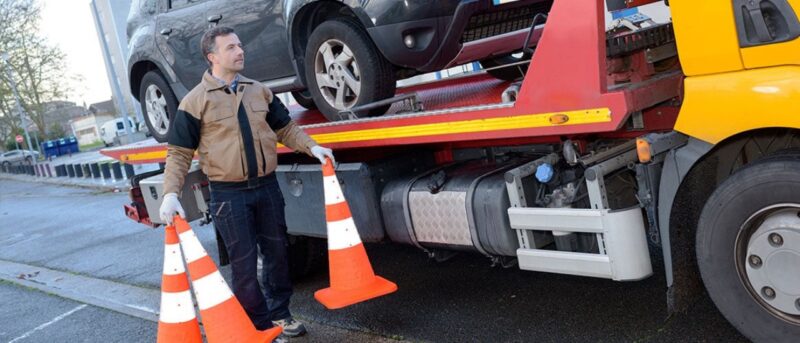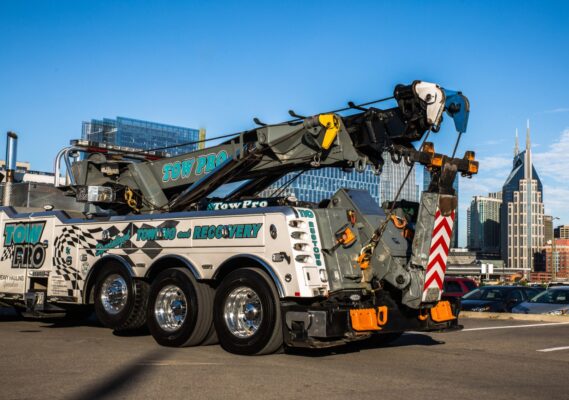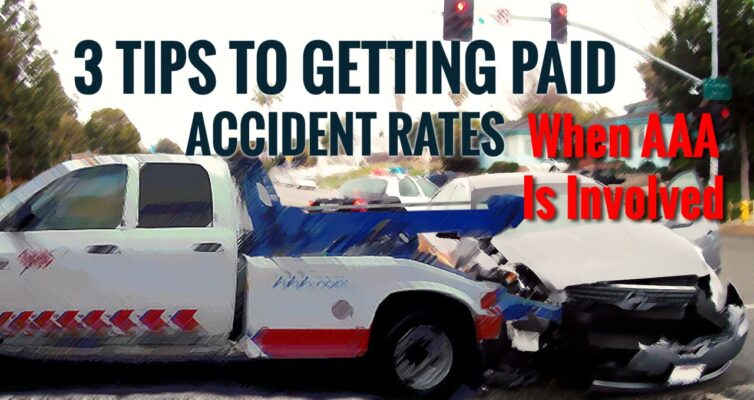Wrecker tow trucks, often referred to simply as “wreckers,” play a crucial role in the towing and recovery industry. These specialized vehicles are designed to recover and transport disabled, damaged, or illegally parked vehicles. Unlike flatbed tow trucks, wreckers use a boom and winch system to lift and tow vehicles. This article explores the design, benefits, applications, challenges, technological advancements, and overall impact of wrecker tow trucks in the industry.
Design and Features of Wrecker Tow Trucks
Wrecker tow trucks are equipped with a variety of features that make them uniquely suited for vehicle recovery:
- Boom and Winch System: The primary component of a wrecker is its boom, which can be either fixed or adjustable. The winch, connected to the boom, is used to pull vehicles out of difficult positions, such as ditches or tight spaces.
- Wheel-Lift: Modern wreckers often include a wheel-lift system that uses metal yokes to lift the vehicle by its wheels, minimizing contact with the vehicle’s body. This system is particularly useful for towing vehicles with damaged or locked wheels.
- Hydraulic Controls: Hydraulics power the movement of the boom and wheel-lift, providing precise control for lifting and towing operations.
- Stabilizers: Many wreckers are equipped with stabilizers or outriggers to provide additional support and stability during recovery operations, especially when dealing with heavy or awkwardly positioned vehicles.
- Safety Features: Wrecker tow trucks include safety lights, reflective markings, and other features to ensure visibility and safety during operations, particularly in low-light or high-traffic conditions.
Benefits of Wrecker Tow Trucks
Wrecker tow trucks offer several advantages that make them indispensable for many towing and recovery operations:
- Versatility in Recovery: The boom and winch system allows wreckers to recover vehicles from difficult and confined spaces where flatbed tow trucks might not be able to operate.
- Efficiency: Wreckers can quickly lift and tow vehicles, making them ideal for emergency roadside assistance and accident recovery scenarios where time is of the essence.
- Cost-Effectiveness: The design of wreckers enables them to handle a wide range of towing situations, reducing the need for multiple types of tow trucks and lowering operational costs for towing companies.
- Ease of Use: With hydraulic controls and wheel-lift systems, wreckers can efficiently lift and tow vehicles with minimal manual intervention, reducing the physical strain on operators.
- Minimal Vehicle Damage: The wheel-lift system reduces the risk of damage to the vehicle’s body and undercarriage, making wreckers suitable for towing vehicles that are still in relatively good condition.
Applications of Wrecker Tow Trucks
Wrecker tow trucks are used in a variety of scenarios, highlighting their versatility and importance:
- Accident Recovery: Wreckers are often the first on the scene after an accident, tasked with removing damaged vehicles from the roadway to restore traffic flow and ensure safety.
- Illegal Parking Enforcement: Law enforcement and parking authorities use wreckers to tow illegally parked vehicles, ensuring compliance with parking regulations and keeping streets clear.
- Roadside Assistance: Motorists experiencing breakdowns, flat tires, or other issues can rely on wreckers for quick and efficient towing to repair shops or other destinations.
- Heavy-Duty Towing: Larger wreckers, equipped with more powerful booms and winches, are capable of towing heavy-duty vehicles such as trucks and buses.
- Off-Road Recovery: Wreckers are invaluable for recovering vehicles that have veered off the road, become stuck in mud, sand, or snow, or are otherwise immobilized in challenging terrain.
Operational Challenges
Despite their many advantages, wrecker tow trucks face several operational challenges that must be managed effectively:
- Safety Risks: Operating in busy or hazardous conditions poses significant safety risks to both operators and other road users. Proper training and adherence to safety protocols are essential.
- Regulatory Compliance: Wrecker operators must navigate a complex web of local, state, and federal regulations, including licensing, vehicle inspections, and insurance requirements.
- Maintenance and Upkeep: Regular maintenance is crucial to ensure the reliability and safety of wreckers. This includes routine inspections of the boom, winch, hydraulic systems, and safety equipment.
- Weather Conditions: Adverse weather, such as snow, ice, or heavy rain, can complicate towing operations, requiring operators to take extra precautions and use specialized equipment.
- Public Perception: The visibility and public interaction of wreckers mean that operators must maintain professionalism and customer service excellence to uphold the company’s reputation.
Technological Advancements
Technological innovations have significantly enhanced the capabilities and efficiency of wrecker tow trucks:
- Advanced Hydraulic Systems: Modern hydraulic systems offer greater precision and control, enabling more efficient and safer vehicle recovery operations.
- Telematics and GPS: Telematics systems provide real-time data on vehicle location, performance, and maintenance needs, helping operators optimize routes and maintain their equipment proactively.
- Remote Control Operations: Some wreckers are equipped with remote control systems that allow operators to manage the boom and winch from a safe distance, reducing the risk of injury.
- Enhanced Safety Features: Newer models of wreckers include advanced safety features such as collision avoidance systems, stability control, and automated braking to protect operators and other road users.
- Mobile Technology: Mobile apps and dispatch systems improve communication between operators and dispatch centers, ensuring quicker response times and more efficient service delivery.
Impact on the Towing Industry
Wrecker tow trucks have a profound impact on the towing industry, contributing to enhanced service quality and operational efficiency:
- Improved Response Times: The efficiency and versatility of wreckers enable faster response times for roadside assistance and accident recovery, enhancing customer satisfaction.
- Increased Versatility: The ability to handle a wide range of towing and recovery scenarios makes wreckers a valuable asset for towing companies, allowing them to serve a diverse clientele.
- Enhanced Safety: The use of advanced technology and safety features in wreckers promotes safer operations, reducing the risk of accidents and injuries during recovery tasks.
- Operational Efficiency: Technological advancements and improved design features streamline operations, reducing downtime and maintenance costs.
- Market Competitiveness: Towing companies that invest in modern wreckers can differentiate themselves in a competitive market by offering superior service and specialized recovery solutions.
Conclusion
Wrecker tow trucks are essential tools in the towing and recovery industry, providing versatile and efficient solutions for a wide range of vehicle recovery scenarios. Their design, featuring a boom and winch system along with a wheel-lift mechanism, enables them to handle complex recovery tasks with ease. Despite facing operational challenges such as safety risks and regulatory compliance, wreckers continue to evolve through technological advancements, enhancing their capabilities and efficiency.
The impact of wrecker tow trucks extends beyond individual recoveries, contributing to improved response times, enhanced safety, and overall operational efficiency in the towing industry. As the demands for reliable and efficient vehicle recovery services continue to grow, the importance of wrecker tow trucks in maintaining road safety and supporting motorists remains paramount. Their role in the industry underscores the ongoing innovation and commitment to excellence that drive the towing sector forward, ensuring that motorists receive the highest quality of roadside assistance and vehicle recovery services.
In summary, wrecker tow trucks are indispensable assets in the towing industry, offering robust and reliable solutions for vehicle recovery and roadside assistance. Their continued evolution and the integration of advanced technologies ensure that they will remain at the forefront of the industry, providing essential services that support the safety and mobility of communities across the nation.











